Worldfocus’ Daljit Dhaliwal spoke with Flynt Leverett, director of theIran Project at the New America Foundation for some insight into theIranian leadership’s reservations about the IAEA’s recent proposalwhich would send low-enriched uranium first to Russia to be enrichedthen to France for further processing.
Energy Archive
Free Newsletter
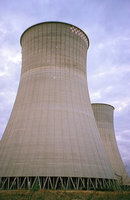
The U.S.-UAE 123 Agreement on civil nuclear cooperation is set to come into force now that the mandatory 90-day period of congressional review has passed. The deal has the firm backing of the Obama administration, which sees it as a model for countries looking to introduce nuclear energy to their territories. For the UAE, the deal represents a reaffirmation of its close ties to the West as well as a gateway to developing a source of energy that, for a number of reasons, makes sense for the Emirates. The third-party beneficiary of the agreement, of course, is France, with its […]
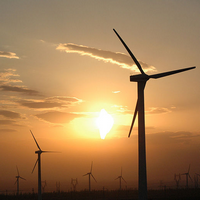
In a landmark address to the U.N. Climate Change Conference last month, Chinese President Hu Jintao announced Beijing’s commitment to trim the explosive growth of China’s carbon emissions “by a notable margin.” But he also reiterated his country’s hackneyed dictum that industrialized countries should bear most of the burden for emissions-cutting. Hu’s headline-grabbing speech captured the essence of China’s Janus-faced climate change policy — which, despite remarkable progress, continues to be bogged down with implementation problems and overshadowed by China’s concerns with economic growth and its leadership role in the developing world. Currently the world’s largest emitter of greenhouse gases, […]
Secretary of State Hilary Rodham Clinton urged the international community to strengthen and focus non-proliferation efforts in a speech given at the U.S. Institute of Peace. She discussed the IAEA’s need for rights and resources upgrading. “All states with nuclear materials or technology have a responsibility to protect them against theft or illicit transfer,” she said.
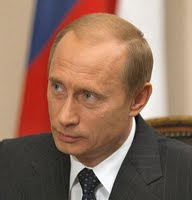
When Russian Prime Minister Vladimir Putin invited Western energy companies to help develop natural gas fields in Siberia’s Yamal Peninsula in late September, many Western observers viewed it as an admission of defeat. After years of increasing state involvement in the upstream of the Russian hydrocarbon sector, a collapse in the price of oil had pushed Moscow to reconsider its adversarial relations with private investors — foreign and domestic alike. While there is some truth to this interpretation, it ignores a more important narrative that emerged from the meeting at the Siberian frontier town of Salekhard about Russia’s shifting attention […]
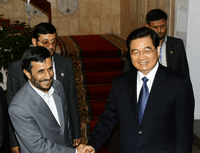
On Iran, China increasingly seems to be the odd man out. Not only have the French taken a surprisingly hard line in international efforts to regulate the Iranian nuclear program, but there are signs that Russia may be stiffening its resolve as well. China, by contrast, seems invariably to caution patience. Meanwhile, Chinese firms are expanding into the Iranian market at the same time that many international actors are leaving. There was a time not so long ago when China would have been expected to undermine Western policy. In the 1960s and 1970s, the People’s Republic worked to chip away […]
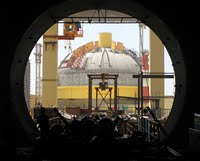
Following the Nuclear Supplier Group’s waiver in September 2008, India seems ready to take its place in the world of nuclear trade — not just as a purchaser, but as a supplier, too. It appears that Kazakhstan is in line to be India’s first customer for indigenously developed 220 megawatt electric (MWe) Pressurized Heavy Water Reactors (PHWRs). The proposed sale seems likely to follow the civil nuclear agreement signed by the two countries in January 2009. In addition to Kazakhstan, a number of Southeast Asian and African countries are also in serious talks with the Indian state-owned nuclear industry major, […]
Voice of America interviews George Friedman, founder of the privateintelligence company Stratfor, and author of “The Next 100 Years: A Forecast for the 21st Century.” Among Friedman’s predictions: Solar arrays will solve the problem of finding clean energy; industrialized nations with declining populations will compete for immigrants from the developing world; the United States and Mexico will come into increasing conflict; and Poland and Turkey will emerge as great powers.
